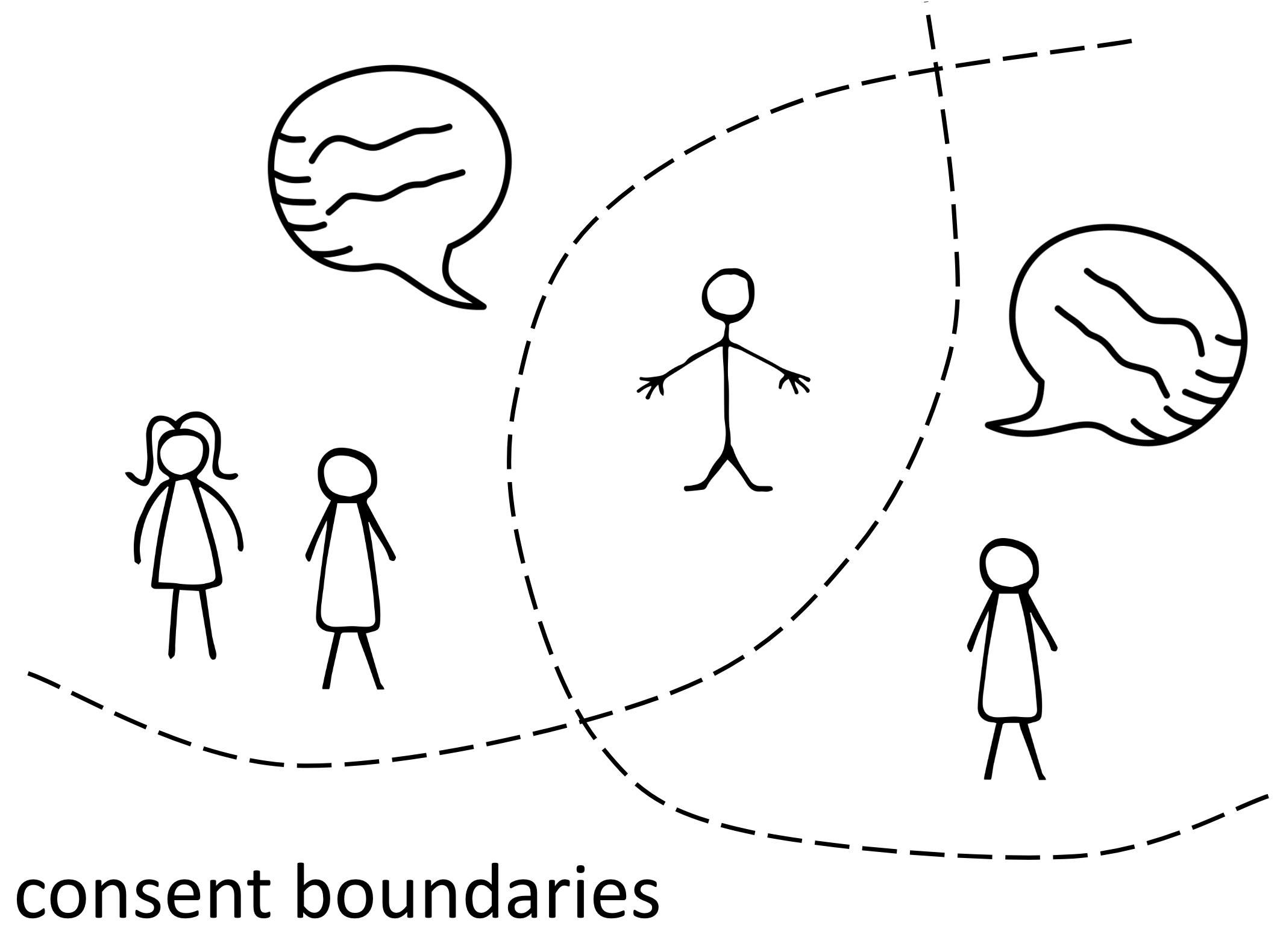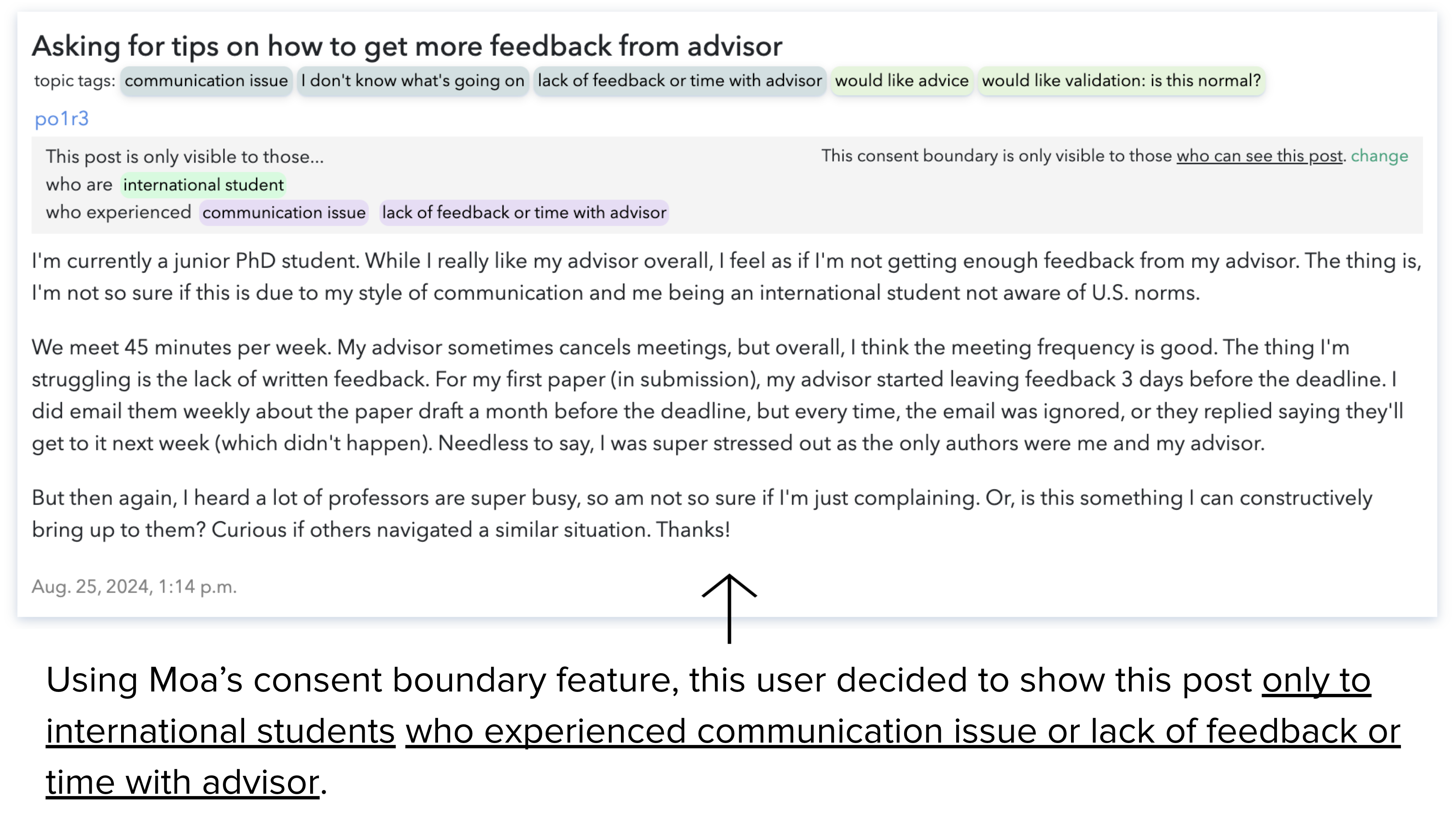Do you have questions about how to navigate your relationship with your PhD advisor? Or do you want to help other PhD students?
Moa provides a safe space for PhD students to do this–by giving users full control over one’s consent boundary.
A consent boundary is a set of people whom a person feels comfortable interacting with about a particular topic.
 For example, a post about improving communication with one's advisor could be set to only be visible to PhD students who have experienced communication issues with their advisors.
For example, a post about improving communication with one's advisor could be set to only be visible to PhD students who have experienced communication issues with their advisors.
Or, a user can set a certain post to be visible only to international PhD students.


Moa is for PhD students who are experiencing any challenges in their PhD advising relationships (e.g., neglect, mistreatment, exploitation, abuse), as well as those who are not so sure what exactly is going on, but nevertheless want more clarity.
It is also for PhD students who have a genuine interest in helping other PhD students, regardless of whether they have experienced challenges themselves.
Read more about Moa here.
Read more about Moa here.